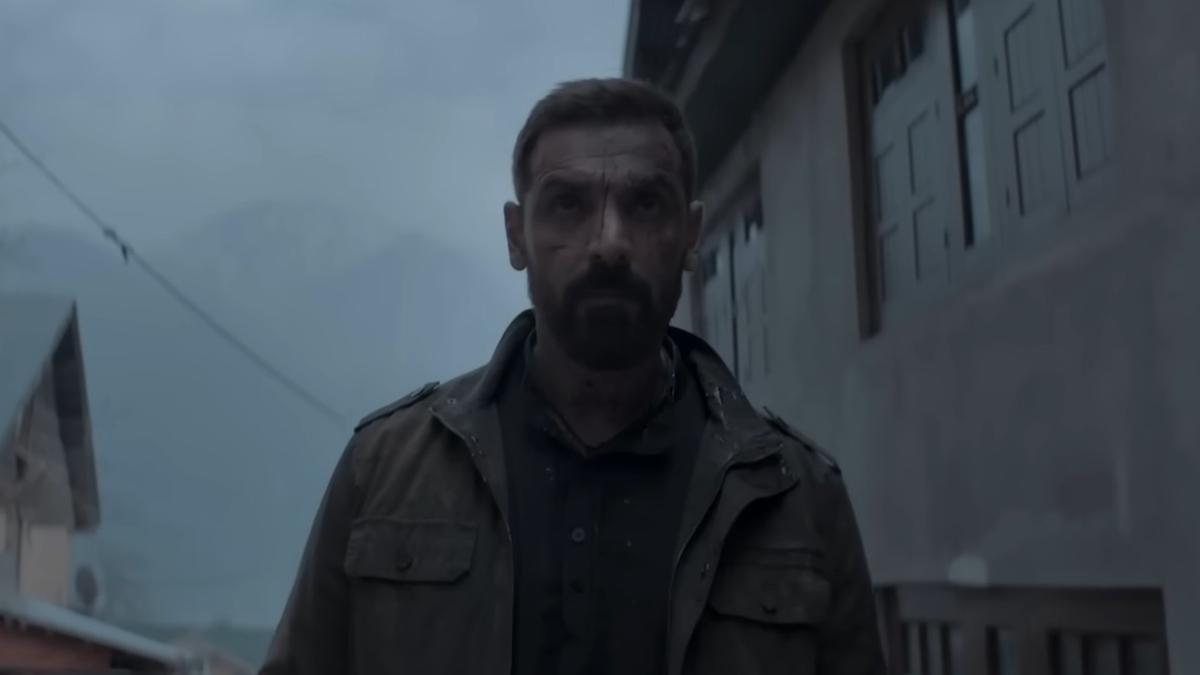
In the landscape of popular Hindi cinema, the depiction of Dalits and their issues often remains a minority, accentuating the unique attributes of “Vedaa,” an action drama that treads new ground by highlighting caste-based injustices. Directed by Nikkhil Advani, the film intertwines its storyline with social realities, subtly yet significantly presenting B.R. Ambedkar’s photo inside a humble abode, manifesting his enduring legacy.
The narrative revolves around Vedaa Bairwa (Sharvari), a determined Dalit law student striving to join her college’s elite boxing club. Despite her aspirations, she continually faces discrimination from the self-proclaimed gatekeepers of social order, determined to keep her at the lower echelons of the caste hierarchy. Her plight catches the attention of Abhimanyu (John Abraham), a former Army officer whose personal tragedies have led him back to his wife’s village. Here, he assumes the role of a boxing coach, providing Vedaa with the support she desperately needs.
Set in the backwaters of a patriarchy-laden society, where political leaders endorse progressive ideas as long as traditional caste systems remain undisturbed, the narrative heats up as the protagonists cross paths with Jitendra Pratap Singh (Abhishek Banerjee). Jitendra, the head of a powerful caste panchayat and father to a young girl, embodies political correctness but is bound by the archaic beliefs of his father (Ashish Vidyarthi). Jitendra’s younger brother further amplifies the family’s dominance, roaming around as a thug, asserting their authority.
The catalyst comes when Vedaa’s brother falls in love with an upper-caste girl, stirring Jitendra’s wrath and unleashing chaos. Abhimanyu steps in to protect Vedaa, reiterating his silent strength and adherence to principles. The brooding hero, battling his own demons, supports Vedaa’s fight for dignity and equality, reflecting a poignant picture of despair and resistance. Vedaa seeks justice through legal means, while Abhimanyu’s battle-scarred psyche leans towards immediate action, setting up a narrative journey that promises much but occasionally falters.
Director Nikkhil Advani, once a maestro of romantic narratives, has meticulously crafted a heartless world in “Vedaa,” contrasted sharply by John Abraham’s sullen depiction of Abhimanyu.
. As he rides a metaphorical beast, the atmospheric intensity surrounding him paints a vivid, stirring picture of the conflicts at hand. However, Nikkhil grapples with how much social realism he can infuse into a mainstream action film led by an actor synonymous with adrenaline-pumping sequences reminiscent of “The Transporter.” This dilemma results in a mixed narrative—an elaborate action-packed frame with intermittent dialogues on equality, occasionally stretching into lengthy, disconnected segments. This approach sometimes leaves the impression that Vedaa is entrapped in a preordained cycle like a video game character, navigating her way through adversities.
While the film claims to be inspired by true events, writer Aseem Arora’s script has undergone the typical Bollywood transformation. Performances are a strong point, with John Abraham, known for his intense screen presence, fitting perfectly into the role of Abhimanyu. Sharvari’s performance is notable as well, displaying growth with each outing, though a deeper physical transformation might have added more depth to her portrayal. The action choreography is compelling, yet the film seemingly avoids confronting the larger conflict head-on. For much of its runtime, it feels like the narrative is holding back, delaying John Abraham’s transition from passive observer to active participant—a shift that only materializes towards the end, as his character resorts to quoting from the Mahabharata.
The uneven mixture of action and serious societal issues occasionally makes it seem that the latter is being used merely to spice up a traditional masala film. The filmmakers are evidently conscious about ensuring that Abhimanyu doesn’t overshadow Vedaa, which paradoxically hampers the movie’s rhythm and flow. Perhaps the ideological struggle within the filmmakers, who themselves straddle the in-between generation, contributes to this inconsistency. Despite an item number thrown in for commercial appeal, they aim not to stray towards political incorrectness.
“Vedaa” aims to be more than just an action flick and, in parts, resonates with the social consciousness it seeks to promote. Nevertheless, it struggles to maintain a smooth narrative flow, partly due to potential cuts by the Censor Board and partly due to the filmmakers’ restrained approach. Currently playing in theaters, “Vedaa” presents an ambitious yet imperfect attempt to blend gritty societal commentary with the allure of high-octane action.












